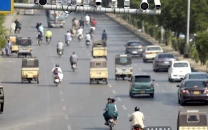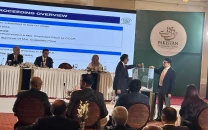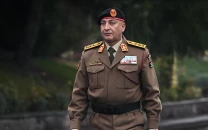Aid unreachable
Victims were throwing pieces of paper with messages pleading for supplies in KPK

Several people displaced by the floods have been complaining about how aid is still not getting to them. In many cases, the victims have still not been given basics like food and water, and tents and mosquito nets. Protests are becoming commonplace at the camps, but administrators keep claiming that the situation is under control, or that all victims in their camps are being cared for. At some camps, visiting doctors and health workers are short on medicines, while several camps have no solutions for feeding babies and infants. This is especially concerning due to the high risk of waterborne diseases in the camps.
The situation is even worse for the thousands of people that could not get to relief camps and are living on roadsides and other areas under the open sky. One news report from K-P mentioned how victims were throwing pieces of paper with messages pleading for supplies. In parts of Sindh, flood victims living outside camps complained that they have gone over two weeks without receiving any government assistance and are reliant on charity from local people. Several communities in Balochistan are apparently still cut off from the world.
At the same time, some government officials are willing to admit that there are not enough relief goods available to help everyone. NGO officials have also noted that the scale of the floods meant they are overwhelmed, and they have only begun to find their footing since international aid began arriving in the country. Some reports even said that relief supply stocks were lost to floodwater. But while these factors may explain the shortages, they still don’t explain why relief distribution was so slow to begin with — floods in Sindh began in June, but government aid only began flowing in August, according to some affected people. Meanwhile, we still haven’t gotten answers as to why dozens of dams and levees failed to hold back water in several areas. Blaming climate change is easy, but punishing the people who aggravated the disaster is much harder.
Published in The Express Tribune, September 8th, 2022.
Like Opinion & Editorial on Facebook, follow @ETOpEd on Twitter to receive all updates on all our daily pieces.















COMMENTS
Comments are moderated and generally will be posted if they are on-topic and not abusive.
For more information, please see our Comments FAQ